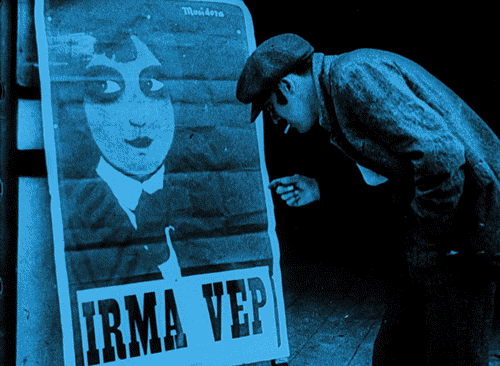Here, for a change, is a double header — reviews of two films I’m especially fond of, both by Bob Balaban, made and reviewed about six years apart, Parents and The Last Good Time.
From the Chicago Reader (April 7, 1989). — J.R.
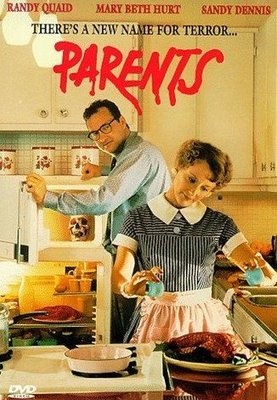
PARENTS
*** (A must-see)
Directed by Bob Balaban
Written by Christopher Hawthorne
With Randy Quaid, Mary Beth Hurt, Bryan Madorsky, Sandy Dennis, Juno Mills-Cockell, Kathryn Grody, Deborah Rush, and Graham Jarvis.

Having already opened and speedily closed in both Los Angeles and New York, Parents arrives in Chicago under a bit of a cloud. Brilliant but uneven, this ambitious feature doesn’t have a script that’s worthy of its high-powered direction, doesn’t build as dramatically as it might have, and clearly bites off more than it can chew. But it is still the most interesting and exciting directorial debut that I have encountered in some time — a “failure” that makes most recent successes seem like cold mush. Choosing a movie to take with me to a desert island, I would opt without a second’s hesitation for Parents over such relatively predictable Oscar-mongering exercises as Rain Man, The Accidental Tourist, or Dangerous Liaisons, because it’s a movie that kept me fascinated, guessing, and curious — even when it irritated me. Read more
From the June 13, 1997 Chicago Reader. July 17, 2022: I’ve just belatedly caught up with the first six episodes of Assayas’s Irma Vep miniseries, and even though it’s much lighter fare than the feature, I’m fascinated by the way he mixes in autobiographical and/or pseudo-autobiographical elements in this remake of a remake. — J.R.
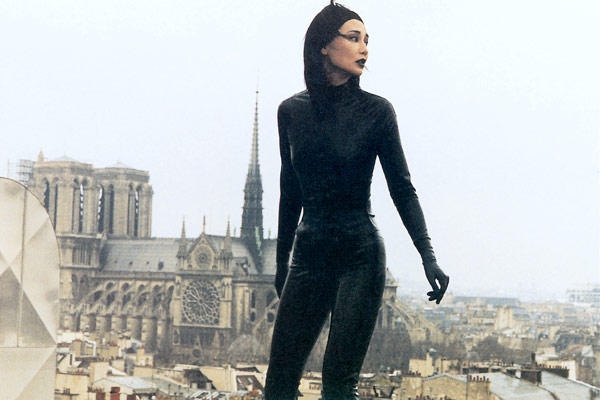
Irma Vep
Rating ****
Directed and written by Olivier Assayas
With Maggie Cheung, Nathalie Richard, jean-Pierre Léaud, Lou Castel, Dominique Faysse, Bulle Ogier, Arsineé Khanjian, and Antoine Basler.
The whole point is that the world is constantly changing, and that as an artist one must always invent new devices, new tools, to describe new feelings, new situations….If we don’t invent our own values, our own syntax, we will fail at describing our own world. — Olivier Assayas, in a letter to critic Kent Jones
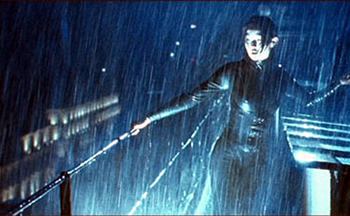
Like many other eras, ours is not inordinately fond of examining itself, and any movie that does that work for us risks being overlooked, resented, or simply misunderstood. Hou Hsiao-hsien’s Taiwanese Goodbye, South, Goodbye, one of the major films at Cannes last year to perform this task, was greeted mainly by bored puzzlement. But a Peruvian film critic in Chicago a few weeks back mentioned to me that this movie told him more about what was happening in contemporary Peru than any other he’d seen — which suggests that our awareness of global capitalism’s recent activities may be more germane to appreciating certain movies than their particular nationalities. Read more
Since writing this for the April 27, 1990 issue of the Chicago Reader, I’ve become an even bigger fan of Charles Willeford’s four Hoke Moseley novels; some of their virtues remind me of John Updike’s novels about Rabbit Angstrom. My favorite of these Moseley novels remains Sideswipe. — J.R.
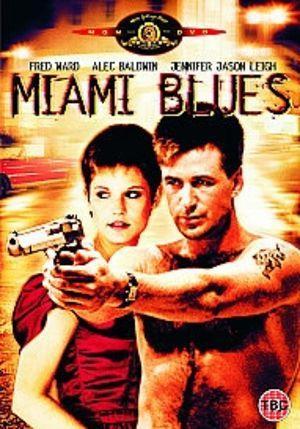
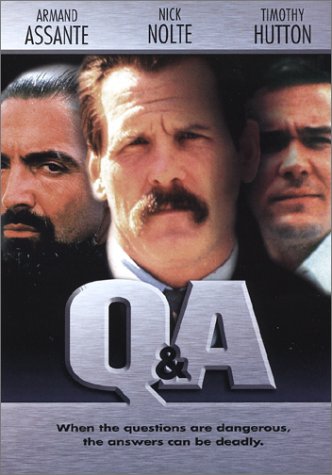
MIAMI BLUES
*** (A must-see)
Directed and written by George Armitage
With Fred Ward, Alec Baldwin, Jennifer Jason Leigh, Nora Dunn, Charles Napier, Obba Babatunde, and Shirley Stoler.
Q&A
** (Worth seeing)
Directed and written by Sidney Lumet
With Nick Nolte, Timothy Hutton, Armand Assante, Patrick O’Neal, Lee Richardson, Luis Guzman, Charles Dutton, Jenny Lumet, and Paul Calderon.
The ambiguous power and image of the policeman stand at the center of two better-than-average crime pictures playing at the moment, both of them the work of writer-directors adapting novels by others. Part of the merit of these two otherwise very different movies is that neither one depends on either of the compulsively overworked subgenres that currently dominate the scene — the cop-buddy action thriller derived from TV or the hunt for the serial killer derived from Dirty Harry.
I have less of an aversion to the cop-movie genre per se than to what this genre has become. Read more
This review appeared in the Autumn 1990 issue of Sight and Sound.–- J.R.
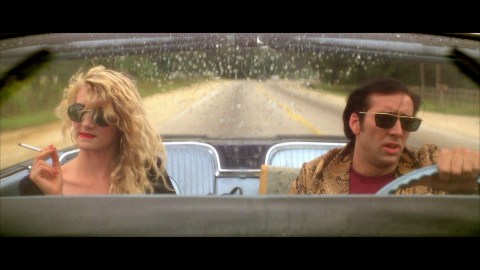
WILD AT HEART
Dedicated to the memory of the late noir writer Charles Willeford, Barry Gifford’s Wild at Heart is a lovely little novel about youthful passions, dashed hopes and intricate cross-purposes in a redneck milieu. Split into 45 chapters over a mere 159 pages, it charts the cross-country flight of Sailor and Lula, a recent parolee and his girlfriend, from her hysterical mother, proceeding from the Carolinas to New Orleans to Texas in a picaresque journey that, in the tradition of the eighteenth-century novel, has plenty of room for interpolated stories. More literary in a self-conscious way than Willeford at his best (e.g., Sideswipe), it imparts a similar feeling for the vernacular poetry of despair and the way certain people live, think and speak. (‘The woman wouldn’t be fifty for two or three years yet and she acted like life forgot her address.’)
It is hard to imagine a commercial film that could respect the book’s form; and to find a commercial filmmaker who could respect its characters, milieu and feelings, one would have to look for someone like the Nicholas Ray of They Live By Night. Read more



